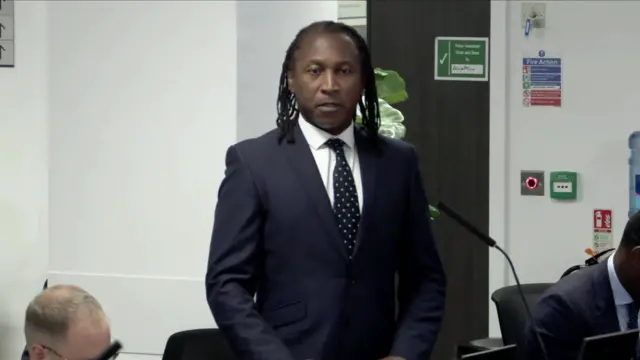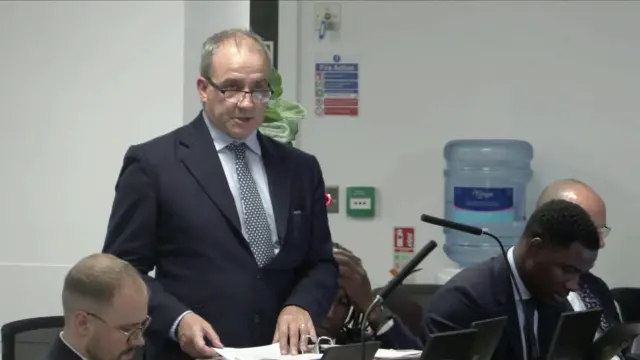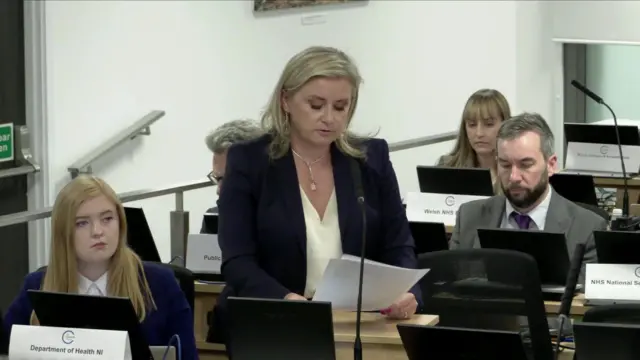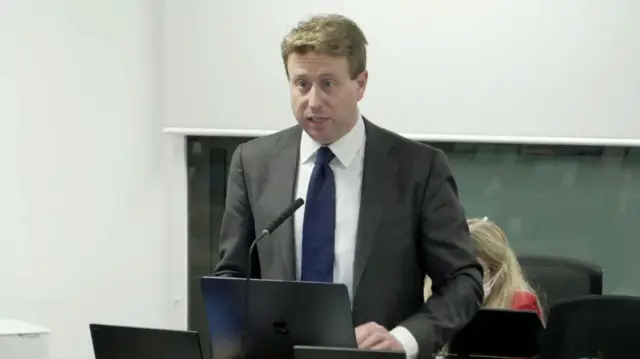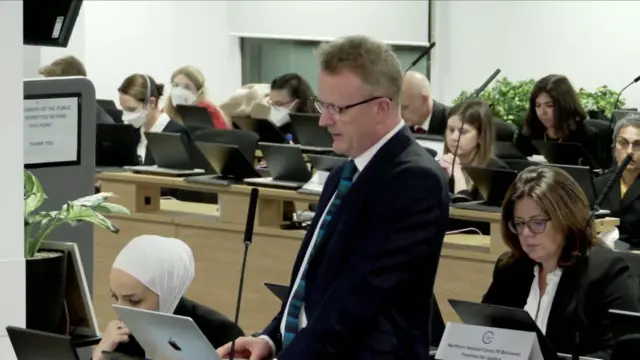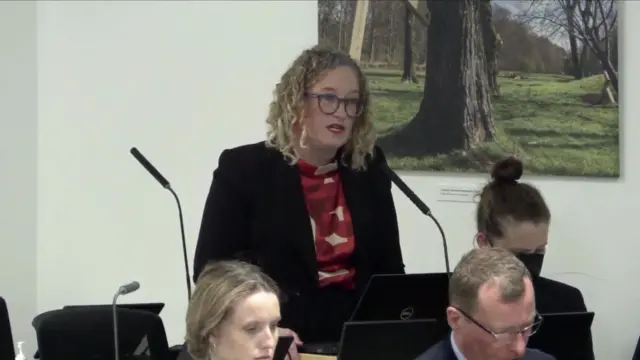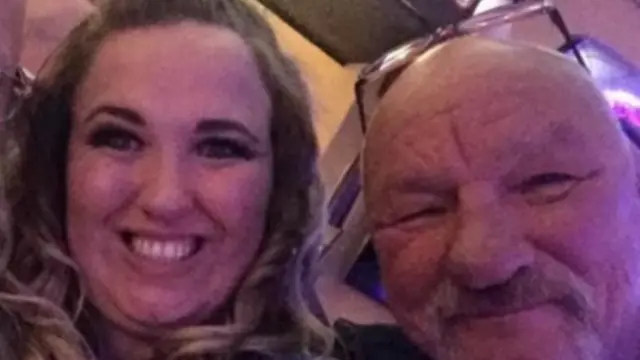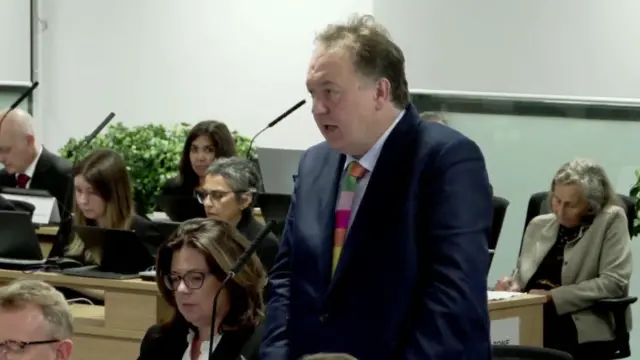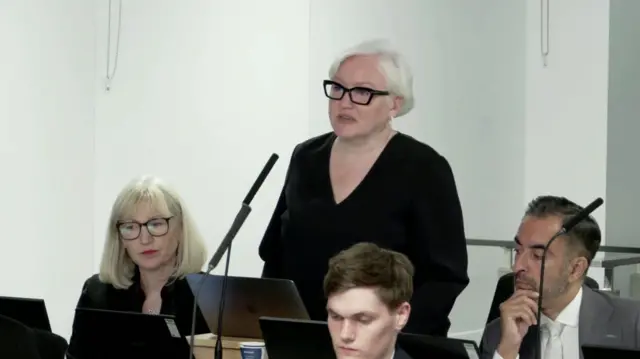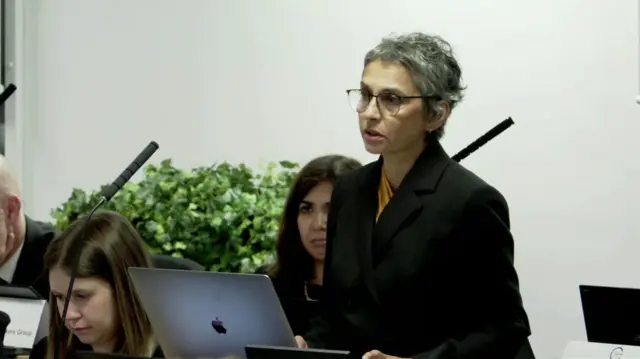What did the Covid inquiry hear today?published at 17:10 BST 9 September 2024
We’re about to close our live coverage of the start of the third phase of the Covid-19 inquiry, which is examining the pandemic's impact on patients, healthcare workers and the wider NHS.
Here's a recap of what we've heard today:
- The module began with a 10-minute impact video, which showed doctors, paramedics and pharmacists describing how they had "no support at all" at the start of the outbreak
- The video also featured poet and broadcaster Michael Rosen, who recounted that he had a 50-50 chance of survival in intensive care when he was infected with Covid
- The inquiry heard that many people died alone, and there was a lack of scientific consensus over how Covid infections were spread
- Jacqueline Carey KC, counsel to the inquiry, said hip replacement surgeries and diagnoses of health issues such as colorectal cancer were delayed during the pandemic
- Some women were alone when they received "devastating news" about their pregnancies, Casey said
- Peter Wilcock KC, representing the Northern Ireland bereaved families group, said there are "distinct differences" in the health services of the four nations and urged the inquiry to learn from the past
- Leslie Thomas KC, representing the Federation of Ethnic Minority Healthcare Organisations, said there's evidence showing the pandemic's disproportionate affect on minorities
The inquiry will resume at 10:00 BST tomorrow. Thank you for joining us.
